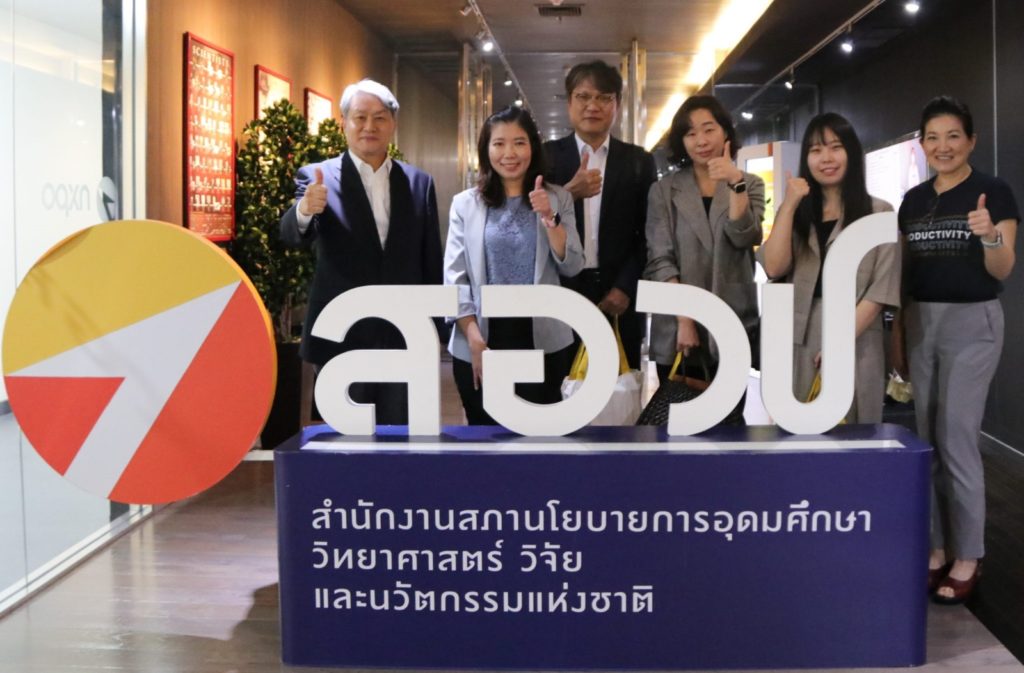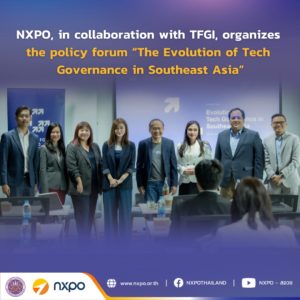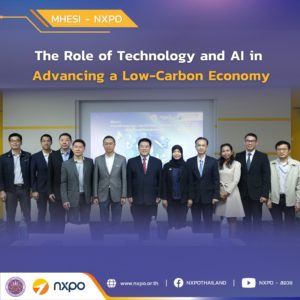On 12 December 2023, NXPO welcomed visitors from the Korea Productivity Center and Thailand Productivity Institute. The purpose of the study visit was to exchange perspectives on environmental, social and governance practices (ESG) and their connection with the Thai government’s Bio-Circular-Green Economy (BCG) model. The visit also explored potential collaborations among the three organizations. The guests met with Ms. Panisa Harnpathananun, Director of Higher Education Innovation and Future Skills Development Division, and Dr. Chanida Sansaard, Policy Specialist in the Directorate of Sustainable Development Policy and Future Planning.
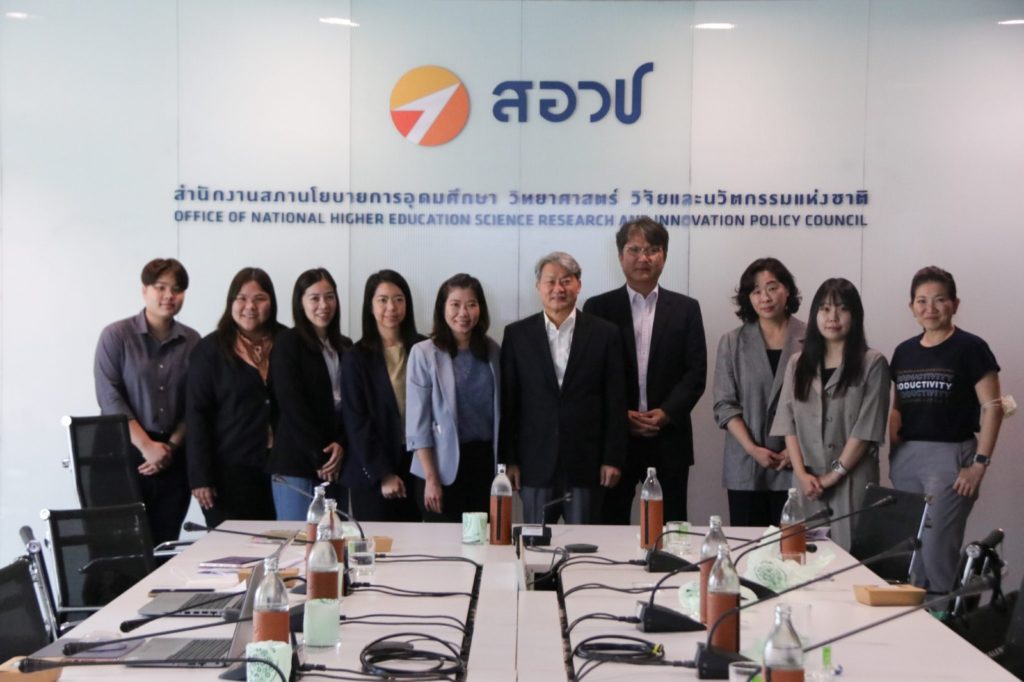
Ms. Panisa provided insights into Thailand’s higher education, science, research and innovation system and outlined four key issues that NXPO has been undertaking: 1) freeing Thailand from the middle-income trap by increasing the number of innovation-driven enterprises with an average revenue of THB 1 billion to 1,000 companies; 2) facilitating upward social mobility for 1 million individuals through higher education, science, research and innovation; 3) reducing greenhouse gas emissions by 10 million tons of CO2 equivalent; and 4) increasing the proportion of highly-skilled workforce to 25%.
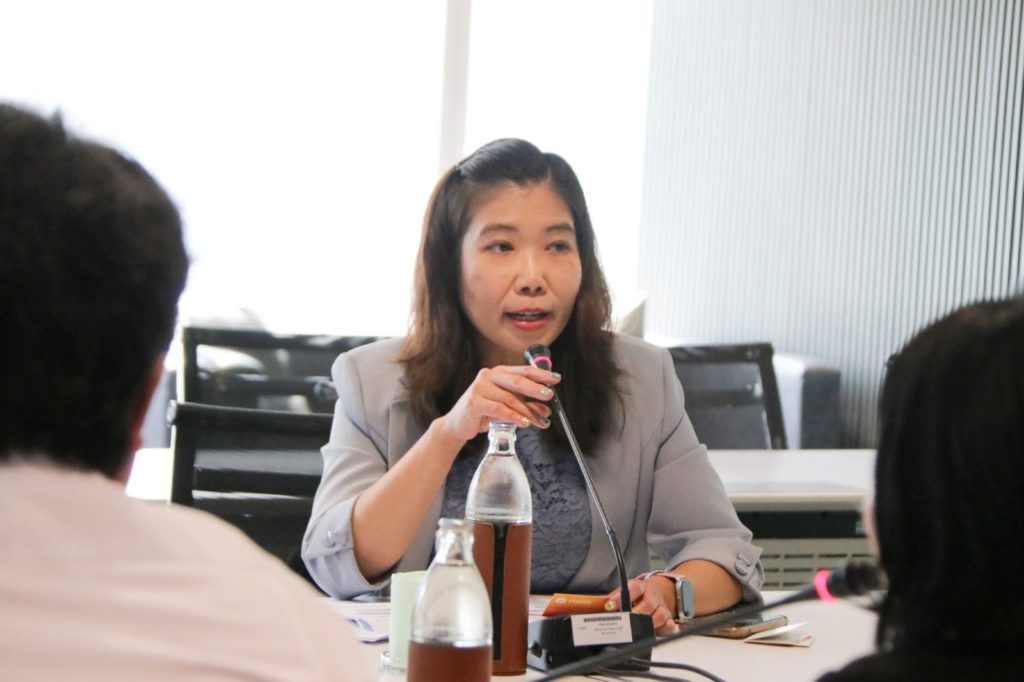
Furthermore, Ms. Panisa highlighted Thailand’s manpower development initiatives driven by NXPO, such as the higher education sandbox and the GenNX model. The latter is a joint initiative between NXPO and Generation Thailand offering intensive training courses for careers in digital technology and senior caregiving.
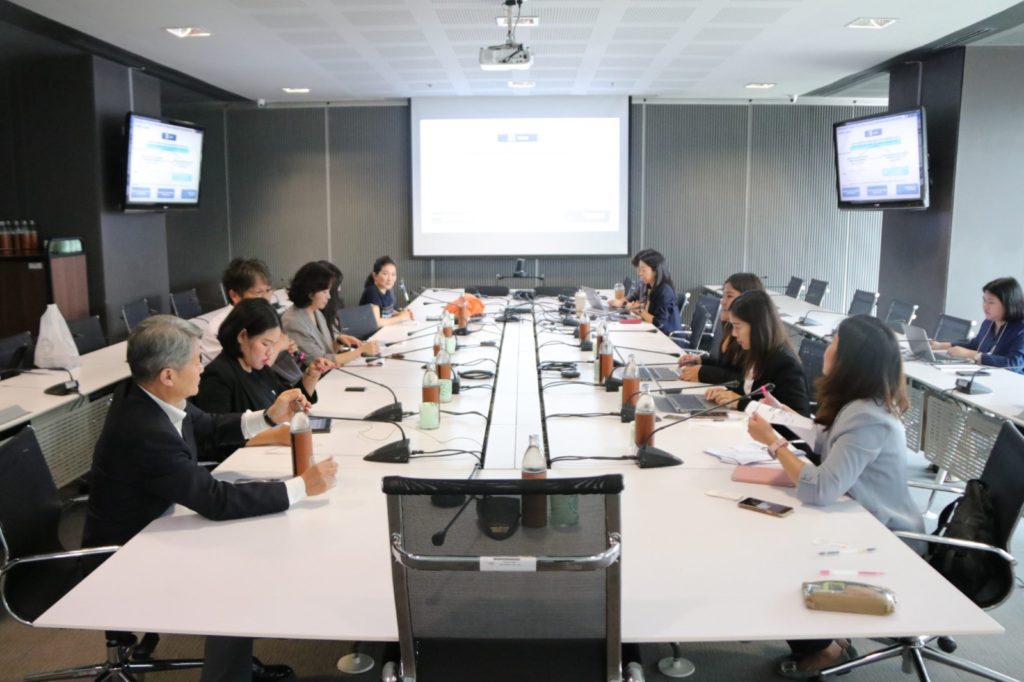
Dr. Chanida presented information on Thailand’s climate change policy and initiatives. Apart from being the key organization responsible for higher education, science, research and innovation policy, NXPO serves as Thailand’s national designated entity (NDE) in technology development and transfer within the United Nations Framework Convention on Climate Change (UNFCCC). The office also coordinates technology needs assessment (TNA) for Thailand.
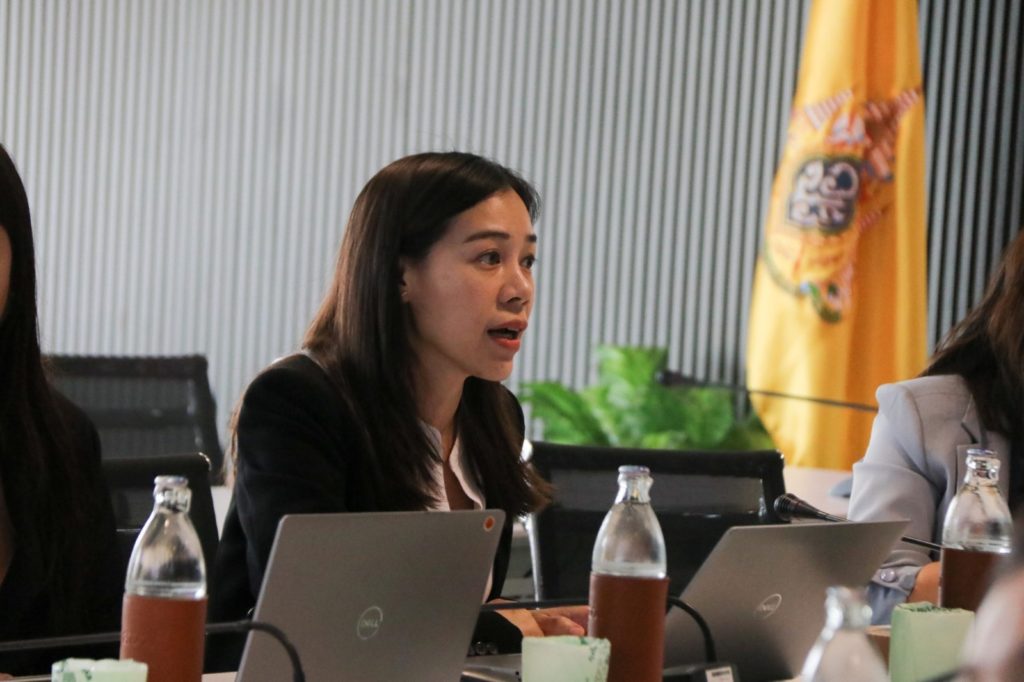
Examples of climate action initiatives in Thailand were shared, including a joint project with the Office of Small and Medium Enterprise Promotion (OSMEP) to design BCG indicators as a tool for enhancing business sustainability for SMEs. The Green Campus serves as a low-emission model for universities.




Following the sharing and discussions, all parties agreed on several areas that could foster collaborations among the three organizations. These areas include technology, environment, manpower development, with a special focus on technology for green productivity and the establishment of capacity building programs to promote green mindset and develop experts for VVBs (Validation and Verification Bodies).
